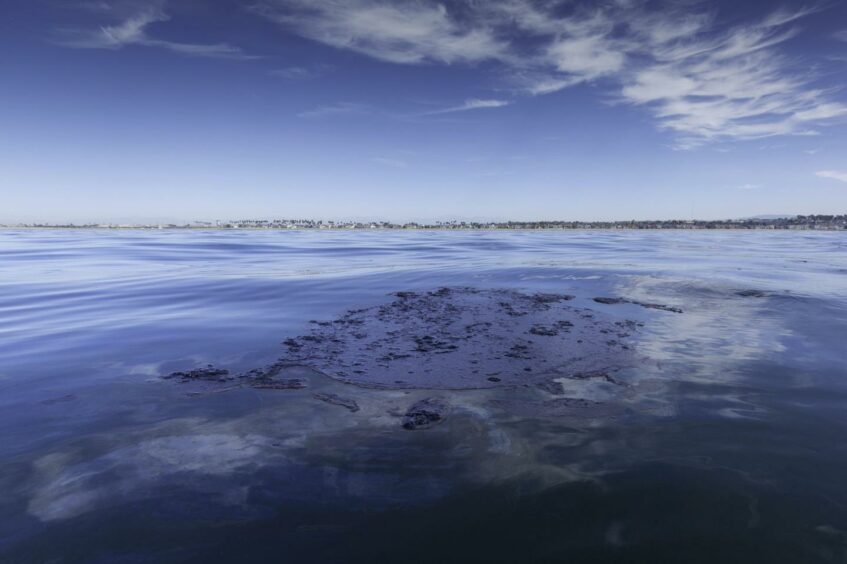
Amplify Energy Corp. has been charged with criminal negligence in the worst oil spill in California in almost three decades.
An estimated 25,000 gallons (94,635 liters) of crude oil leaked from a submerged pipeline off the coast of San Diego.
The leak in early October spread a 13-mile (27.4 kilometers) oil slick that fouled beaches and killed wildlife along the Southern California coast.
A federal grand jury indicted the Houston-based company Wednesday along with two of its units, Beta Operating Co. LLC and San Pedro Bay Pipeline Co., charging them with one misdemeanor count of negligent discharge of oil, according to a statement from the U.S. Attorney’s Office in Los Angeles.
The companies own and operate the 17 mile-long San Pedro Bay Pipeline. They took more than three hours to plug the leak in the pipeline after a low-pressure alarm sounded in the early morning of Oct. 2, according to the U.S. Department of Transportation.
Amplify and its units were negligent in at least six ways, “including failing to properly respond to eight separate leak alarms over the span of more than 13 hours and improperly restarting the pipeline that had been shut down following the leak alarms,” according to the US Attorney’s Office.
Amplify disputed the allegation in a statement Wednesday.
The company said its employees took prompt action, investigating what they believed were false leak detection alarms. But the leak detection system wasn’t functioning as designed, Amplify said.
It “was repeatedly and wrongly signaling a potential leak at the platform where no leak could be detected by the platform personnel and where no leak was actually occurring,” the company said. The leak actually occurred more than four miles away, where the pipeline was displaced by a ship’s anchor, according to the company.
“Had the crew known there was an actual oil spill in the water, they would have shut down the pipeline immediately,” Amplify said.
If convicted, the companies could face millions of dollars in fines and be placed on probation for as long as five years.